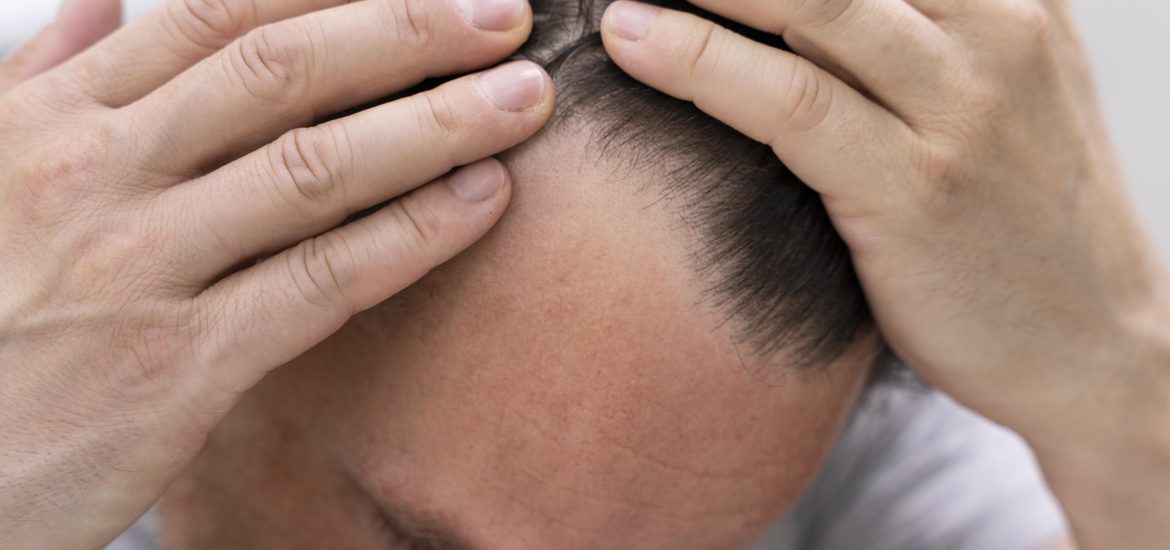Shilajit, a mineral-rich substance found in the rocks of the Himalayan Mountains, has been used for centuries in traditional Ayurvedic medicine for its wide range of health benefits. Recently, it has gained attention for its potential effects on hair loss. In this article, we will explore the evidence behind shilajit’s impact on hair health and discuss how it may benefit those struggling with hair loss.
Hair loss can be a frustrating and emotionally distressing experience for many people. It can be caused by a variety of factors, including genetics, hormonal imbalances, and nutritional deficiencies. One of most common treatable causes of hairloss is nutritional and mineral deficiency. While there are many hair loss treatments available, such as medications and hair transplants, some people are turning to natural remedies like shilajit for a more holistic approach.
Shilajit contains a variety of minerals and compounds that may be beneficial for hair health. One of the key components of shilajit is fulvic acid, which is known for its antioxidant and anti-inflammatory properties. Fulvic acid may help to protect hair follicles from damage caused by oxidative stress and inflammation, which can contribute to hair loss. Fulvic acid has also been shown to stimulate and promote hair growth.
Shilajit also contains a range of minerals that are essential for healthy hair growth, including iron, magnesium, and zinc. These minerals play important roles in the production of keratin, the protein that makes up hair, and in the metabolism of hair follicle cells. Zinc, in particular, is critical for the growth and development of hair follicles, and a deficiency in this mineral has been linked to hair loss. Shilajit is a naturally ocurring substance containing of 80 minerals beneficial to the human body. This is a great way to avoid mineral deficiency.
In addition to its mineral content, shilajit has been shown to have a positive impact on testosterone levels. Testosterone is a hormone that can contribute to hair loss when levels are too high. Shilajit has been found to help regulate testosterone levels, which may help to prevent hair loss.
While the evidence supporting shilajit’s impact on hair health is promising, more research is needed to fully understand its effects. However, there are many anecdotal reports of shilajit helping to improve hair growth and thickness in individuals with hair loss. This is why it has been consumed to centuries and has been called ‘the destroyer of weakness’.
If you are interested in using shilajit to support hair health, there are several ways to incorporate it into your routine. Shilajit is available in supplement form, such as capsules or powders, and can be added to smoothies or other foods. I usually prescribe as a semi-solid formulation. It can also be applied topically as a hair mask or added to hair care products such as shampoos and conditioners.
When using shilajit for hair loss, it is important to use a high-quality product from a reputable source. Be sure to follow the recommended dosage guidelines and speak with a healthcare professional before starting any new supplement or treatment. Click here to read my article about checking the quality of Shilalit.
In addition to using shilajit, there are other natural remedies that may be beneficial for hair health. Eating a balanced diet rich in vitamins and minerals, getting regular exercise, and managing stress levels can all help to support healthy hair growth.
In conclusion, while more research is needed to fully understand the effects of shilajit on hair health, its potential benefits are promising. Shilajit’s mineral content, antioxidant and anti-inflammatory properties, and impact on testosterone levels make it a potentially valuable tool for those struggling with hair loss. As with any natural remedy, it is important to use shilajit in conjunction with other healthy lifestyle habits for optimal results.

